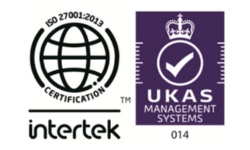Running a business, among other things, involves managing your capital against your liabilities. These include known liabilities as well as anything unforeseen – such as theft, property damage or employee injury. It is for these unforeseen reasons that many businesses opt for liability insurance, part of which is payroll insurance.
Implementing a good payroll insurance policy keeps you, and in turn your employees, protected in the event of a significant unexpected business expense.
What are payroll liabilities?
Understanding payroll insurance begins with understanding your payroll liabilities. Unsurprisingly, a large portion will be made up of the salaries paid over to every employee on the payroll.
Employee taxes will also contribute to your payroll liabilities, as will any other sizable costs that go into your payroll. Taxes may include income tax, property tax, medical aid and any employer contributions.
What is payroll insurance?
Payroll insurance is there to cover payroll liabilities should your business be unable to cover these for any reason. It is linked to errors and omissions insurance, which protects businesses from mistakes made during the course of their business operations.
There are other forms of insurance similar to payroll insurance, such as workers’ compensation and employer liability insurance.
Workers’ compensation insurance
Workers’ compensation insurance (also known as workers’ comp) offers certain benefits to an employee who is injured on the job. These can include things like health insurance, medical care reimbursement and wage remuneration.
Workers’ comp benefits the business too, as employees with workers’ comp are usually legally unable to sue the business as a result of an accident.
Employer liability insurance
Similar to workers’ comp, employer liability insurance is there in the event of an accident or job-related sickness that isn’t covered by workers’ compensation. For this reason, employer liability insurance can be coupled together with workers’ comp.
Do you need payroll insurance?
In a word, yes. In most cases it is illegal not to have workers’ compensation insurance to ensure any medical expenses and salary losses can be covered. Legal requirements aside, payroll insurance has business benefits too.
Should anything go wrong and you’re unable or unwilling to pay damages, the nightmare scenario would involve both losing an employee and facing a lawsuit. The right payroll insurance plan protects the business, and the employees carrying out the business’ functions.
It also offers peace of mind. Once insured, you can carry out business operations with confidence knowing that your business’ assets are covered should any payroll errors occur.
Take advantage of payroll services managed by PayEscape
Mistakes happen, but payroll mistakes need not. For businesses of any size, from start ups to established corporations, effective management of your payroll is essential.
Consider outsourcing your payroll to PayEscape, a leading payroll software provider since 2006.
Join thousands of other businesses across the UK, and request a demo from Payescape today.














